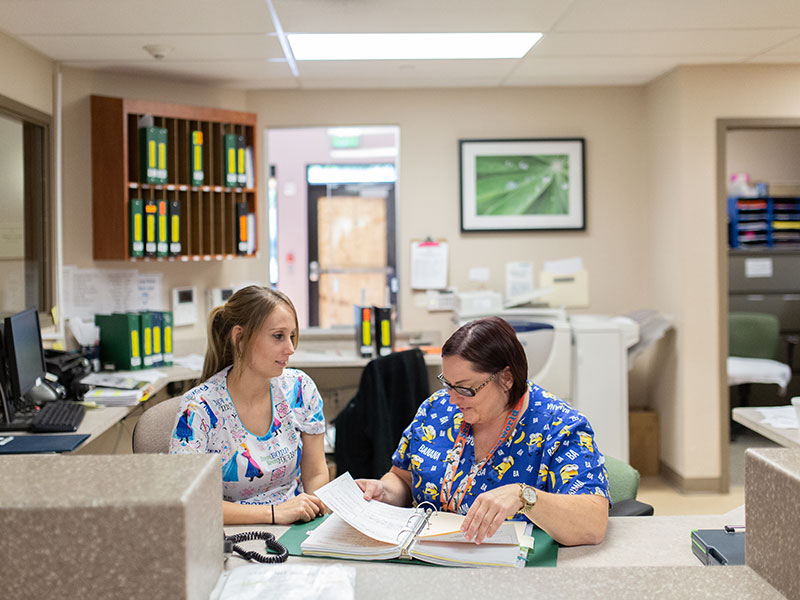Cedar Crest Hospital & Residential Treatment Center helps individuals who are struggling with self-harm find long-term recovery. Located in Belton, TX, Cedar Crest is the leader in mental health care.
Self-Harm Treatment
Learn more about self-harm treatment at Cedar Crest Hospital & Residential Treatment Center in Belton, TX
Self-injury, or self-harm, is an act in which an individual intentionally harms themselves through a number of different methods such as cutting, burning, or hitting. This behavior is not typically meant as a suicidal act, but is an unhealthy way in which an individual copes with emotional pain, intense anger, or serious frustration. While self-harm brings an individual a sudden sense of calm and release of tension, after a short period of time those feelings are replaced by feelings of guilt and shame before the original painful emotions show their ugly heads once more. While engaging in this type of behavior is extremely unhealthy and dangerous, the good news is that with proper treatment most individuals are able to recover.
Cedar Crest, a hospital for self-harm treatment in Belton, has successfully helped thousands of individuals and families overcome a variety of mental health disorders such as self-harm for over 30 years. Our proven history of success in treating substance abuse problems and mental health issues ensures that we can provide you with the treatment needed to help you achieve the future you have always wanted. You do not have to continue to struggle with the emotional pain that consumes you and makes it harder for you to get through the day. Our treatment center can help.
How to Help a Loved One
Helping a loved one get treatment for self-harm
Finding out about a love one who self-injures can be upsetting and leave you at a loss for what to do next. Many individuals tend to experience feelings of shock, confusion, and frustration. Others may fear that their loved one will actually commit suicide. Here are some tips that can help you and your family cope with having a loved one who self-harms:
- Get educated: Take the time to educate yourself about self-injury so you can better understand why it occurs. This will help you develop a more compassionate approach to helping your loved one.
- Try not to judge or criticize: Yelling, criticizing, or being extremely angry at your loved one will only make the behavior worse.
- Let them know you are there no matter what: Remind your loved one that they are not alone and that you are always there for them to talk to.
- Share coping strategy ideas: It may be beneficial for your loved one to hear strategies you use in order to help cope with distressing feelings.
- Suggest they seek treatment: Talk to your loved one about how treatment may be beneficial to them and offer to help them find a program and go with them to all of their appointments.
- Take care of yourself: Remember that in addition to helping your loved one you also need to take time to do some of the things you enjoy. Make sure that you get enough rest and that you find someone you trust to talk to about what you are going through.
Most importantly remember to take all talk of self-injury seriously, it is a serious problem and should not be ignored.
Why Consider Treatment
Why consider treatment for self-harm at Cedar Crest Hospital & Residential Treatment Center in Belton, TX
For those men and women that self-harm, it is a way of expressing and dealing with emotional pain, anger, or frustration. While at the time hurting yourself makes you feel better as a wave of relief washes over your body, the problem is that this relief doesn’t last long and soon all those negative feelings come rushing back. It is a temporary solution to a deep problem and it will only get worse the longer it is left untreated. The secret you have been keeping for so long has started to cause problems within your relationships, making you feel even more alone and worthless. With unresolved issues you may sink deeper into a depression and begin to contemplate suicide.
Inpatient treatment that is equipped to treat self-harm can be an extremely helpful way for those engaging in this type of mutilating behavior to get the help they need. Through a treatment program individuals can learn healthier ways in which to cope with their emotions, while surrounded by a peaceful environment away from the hectic outside world. With the help of a supportive treatment team you can learn to make the necessary changes in your life that will lead to better overall well-being. Individual therapy, group sessions, family therapy, and experiential treatment are all designed to help patients get their symptoms under control while also providing them with the additional support they need.
Our Philosophy
Cedar Crest Hospital & Residential Treatment Center philosophy and benefits
At Cedar Crest, a self-harm treatment center in Belton, our goal is to help all of our patients reach their maximum potential, which allows them to once again be fully functioning members of society. We focus on individual strengths, making sure to build people up so that they can once again be happy and successful in life. Additionally, we make sure to look at each patient in their own environment and take into account family, home life, and support network. This way each patient is getting treatment based on their own individual needs. Our treatment provides a range of mental health and substance abuse services for children, adolescents, adults, seniors, and military personnel. The compassionate staff is dedicated to helping each patient reach their treatment goals.
Types of Treatment
Types of self-harm treatment offered at Cedar Crest Hospital & Residential Treatment Center in Belton, TX
The treatment approach at our center for self-harm acknowledges that each individual faces multiple pressures in life that are unique to him or her. We teach our patients that in order to become a better person, treatment must include developing healthy expression of emotions, community involvement, teamwork, openness to alternative viewpoints, and accountability for one’s own actions. Once an initial assessment has been completed to determine the patient’s presenting problem and potential level of care that will best fit their needs, a face-to-face assessment will be scheduled. Based upon the results of the assessment a treatment plan will be developed. Some of the treatment approaches we use to help treat your self-harming behaviors may include:
Medication: Medication may be used in the treatment of self-harm at our hospital in order to get the symptoms of any co-occurring disorders, like depression or anxiety, under control. With better coping skills, over time medication may be reduced or discontinued altogether. Medication is closely monitored and altered if needed.
Individual therapy: All of our patients in our treatment center meet one-on-one with a therapist. During these sessions individuals can take the time to delve deeper into the emotions that may have led to the development of self-harm. Therapists will often use cognitive behavioral therapy to help patients identify their negative thoughts and replace them with more positive ways of viewing the world.
Group therapy: Group sessions are held on a daily basis at our hospital starting each morning with a morning goals group and ending with a group to recap the day. Throughout the day individuals may also attend groups focused on coping skills, life skills, medication management, and mental health education.
Family involvement: Family therapy is an essential part of the treatment process at our center for self-harm and family members are encouraged to visit throughout the duration of their loved one’s stay. Family members will get a chance to learn more about why their loved one self-harms and ways in which they can be more supportive.
In addition to traditional therapeutic methods we offer a number of experiential treatment options which you will most likely participate in. They include some of the following:
- Walking trails
- Yoga
- Art
- Swimming pool
Continuing Care
Continuing care and levels of treatment for self-harm
When your time at our hospital in Belton is coming to an end, you will meet with your therapist and case manager who will help to get the discharge process complete. Before you leave our care we will make sure that everything is in place. We will make sure that you have an appointment set up for your next phase of treatment, ensure that you have a stable living situation, and provide you with transportation to your next destination. On the day of discharge you will meet with your psychologist and other treatment team members to make sure that you are stable and everything is ready for you to be discharged.
We offer a few outpatient treatment options that may be beneficial for some of our patients who no longer need the intensive care provided in inpatient treatment. Our partial hospitalization program (PHP) is for youth ages 10-17 years of age and is a day treatment program designed to teach living and coping skills, address personal responsibility, and teach positive interactions within the family, school, and community. We also have an outpatient program that is available to patients of all ages whose symptoms are not severe enough to meet the criteria for other treatment levels, but still interfere with daily life. Finally, if a patient is far enough along in the recovery process they may be ready to discharge home and will be provided with referrals for traditional outpatient therapy.

















